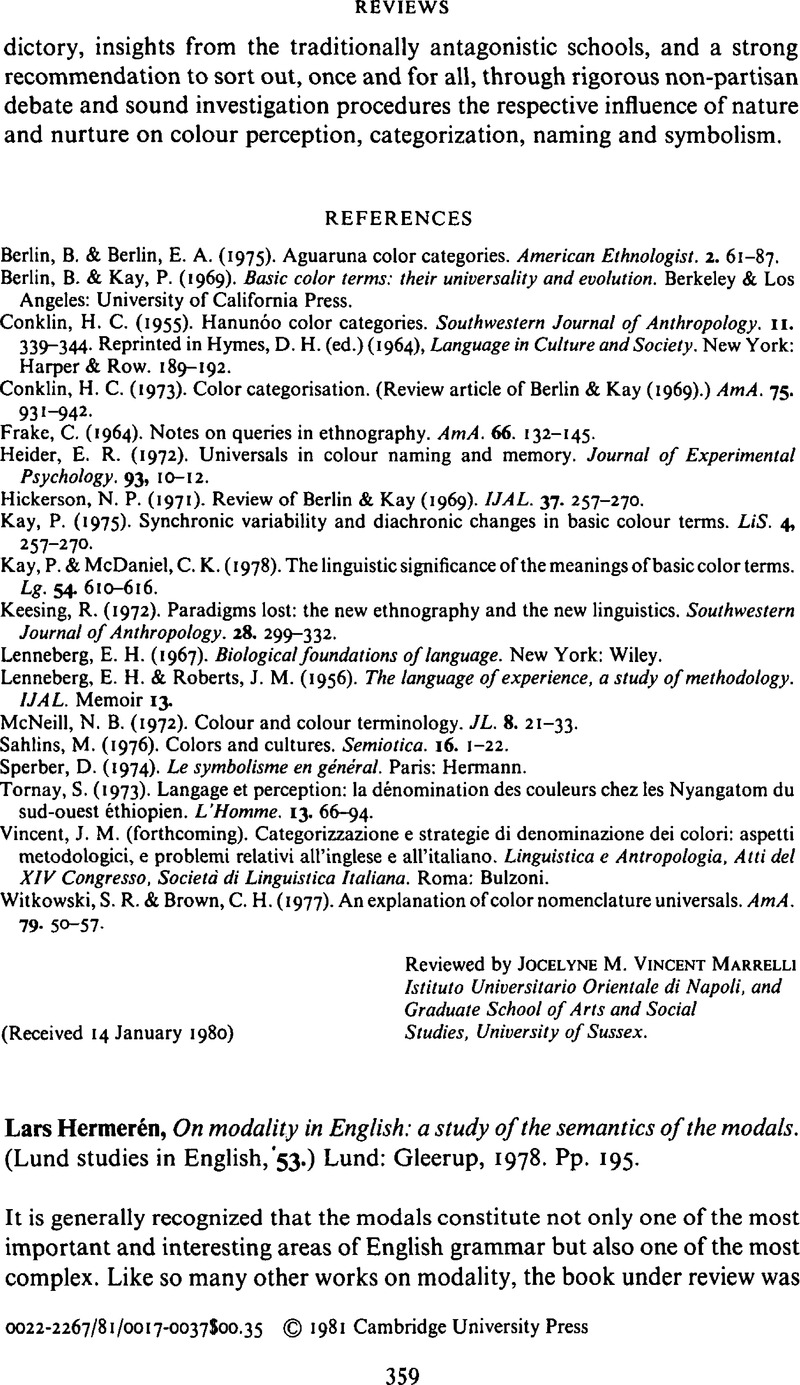No CrossRef data available.
Article contents
Lars Hermerén, On modality in English: a study of the semantics of the modals. (Lund studies in English,53.) Lund: Gleerup, 1978. Pp. 195.
Review products
Lars Hermerén, On modality in English: a study of the semantics of the modals. (Lund studies in English,53.) Lund: Gleerup, 1978. Pp. 195.
Published online by Cambridge University Press: 28 November 2008
Abstract
An abstract is not available for this content so a preview has been provided. Please use the Get access link above for information on how to access this content.

- Type
- Reviews
- Information
- Copyright
- Copyright © Cambridge University Press 1981
References
REFERENCES
Anderson, J. (1971). Some proposals concerning the modal verb in English. In Aitken, A. J., McIntosh, A. & Pálsson, H. (eds), Edinburgh studies in English and Scots. London: Longman, 69–120.Google Scholar
Ehrman, M. E. (1966). The meanings of the modals in present-day American English. The Hague: Mouton.CrossRefGoogle Scholar
Joos, M. (1964). The English verb: form and meanings. Madison and Milwaukee: The University of Wisconsin Press.Google Scholar
Marino, M. (1973). A feature analysis of the modal system of English. Lingua 32. 309–323.CrossRefGoogle Scholar
Wekker, H. (1976). The expression of future time in contemporary British English. Amsterdam: North-HollandGoogle Scholar


